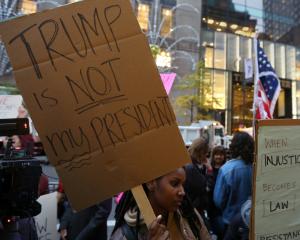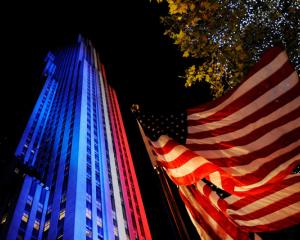Barack Obama's decision to break a pledge and seek private donations rather than rely on public funds to run for president allows him to continue his record-breaking fundraising but opened him to attacks from Republican rival John McCain, who immediately accused the Democrat of backtracking.
By abandoning his earlier commitment, Obama risks damaging the image he has cultivated as a fresh candidate who would change the money-tainted ways of Washington.
"This election is about a lot of things. It's also about trust. It's about keeping your word," McCain told reporters while campaigning in Iowa. He said he would rely on the $84 million in public financing.
The public funding system is designed to reduce the influence of money in politics. It levels the playing field, as each candidate receives the same amount.
Accepting it, however, disqualifies a candidate from using private funds once he is officially chosen as a party's nominee, which will happen at the parties' conventions in August and September.
By forgoing public funds, Obama, who is seeking to become the first black president of the US, would be able to raise, and spend, as much as he wants right up to the November election.
Obama's decision represents a significant milestone in the financing of presidential campaigns. President George W. Bush was the first candidate to reject public financing of primaries when he ran in 2000.
But no candidate has ignored the general election funds since the law setting up the presidential finance system was approved in 1976.
Obama officials said they decided to take that route because McCain is already spending privately raised funds toward the general election campaign. Obama said McCain and the Republican National Committee are fueled by contributions from Washington lobbyists and political action committees.
"It's not an easy decision, and especially because I support a robust system of public financing of elections," Obama told supporters in a video message Thursday. "But the public financing of presidential elections as it exists today is broken, and we face opponents who've become masters at gaming this broken system."
Obama's clear financial advantage over McCain is offset in part by the resources of the Republican National Committee, which has far more money in the bank than the Democratic National Committee.
Several campaign finance watchdog groups voiced dismay at Obama's decision, with Democracy 21 President Fred Wertheimer noting that the conditions Obama had initially set for accepting public funds had been met.
Last year, Obama filled out a questionnaire where he vowed to "aggressively pursue an agreement with the Republican nominee to preserve a publicly financed general election." But since clinching the Democratic nomination earlier this month, Obama has not broached the subject with McCain.
Sen. Russ Feingold, a Democrat who has worked with McCain on campaign finance laws in the past, praised Obama for his support of current campaign finance legislation, but added: "This decision was a mistake."
Obama raked in more than US$265 million ($NZ348 million) as of the end of April. Of that, nearly US$10 million was for the general election, reserved for spending after the party's national convention in August. McCain had raised nearly US$115 million by the end of May, eligible for spending before the convention.
McCain filed his May fundraising report on Thursday with the Federal Election Commission, showing he raised US$21 million during the month and started June with US$31.5 million in cash on hand. He spent a total of US$11.7 million in May.
Meanwhile, McCain toured flood-damaged southeastern Iowa. Bush also was separately touring flooded areas in Iowa. McCain's trip turned into a minor controversy when an aide to Iowa's governor - an Obama supporter - said the Republican had ignored a request from the governor not to visit the state.
Patrick Dillon, Gov. Chet Culver's chief of staff, said the governor was concerned that McCain's trip would divert local law enforcement from the flood recovery effort to provide security for McCain.
David Roederer, who chairs McCain's campaign in Iowa, said McCain proceeded with the visit because the campaign was providing much of its own security, and no state resources were diverted. The mayor of Columbus Junction later agreed that relief efforts had not been hindered.
Also on Thursday, several Hispanic leaders who attended a private meeting with McCain late Wednesday in Chicago said the Republican assured them he would push through Congress legislation to overhaul federal immigration laws if elected.
Both McCain and Obama support giving legal status to millions of illegal immigrants. But many conservatives want McCain to take a harder stance on the issue, and his campaign has suffered because of it.
Obama on Thursday met with union leaders, telling them that he will pursue economic policies that benefits workers if elected president, but that he also will seek input from corporate leaders.
He secured the endorsement of the American Federation of State, County and Municipal Employees, a political powerhouse union that was a strong backer of his former Democratic rival Hillary Rodham Clinton.
Obama also secured the nomination of environmental group the Sierra Club. The group said Thursday its decision was made easier by McCain's support this week of repealing a moratorium on offshore drilling and expanding nuclear power.








